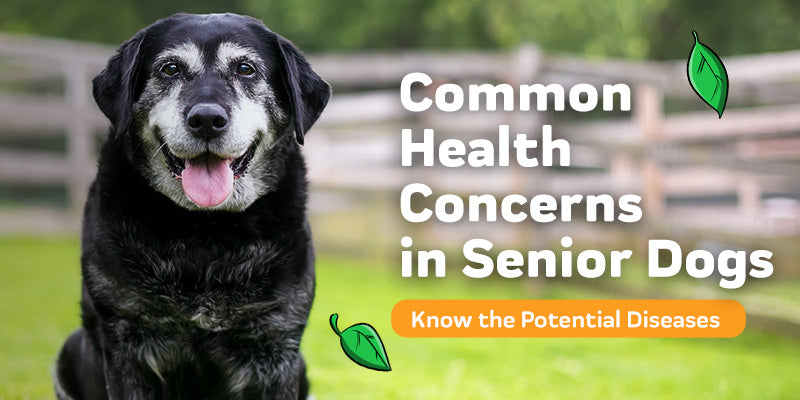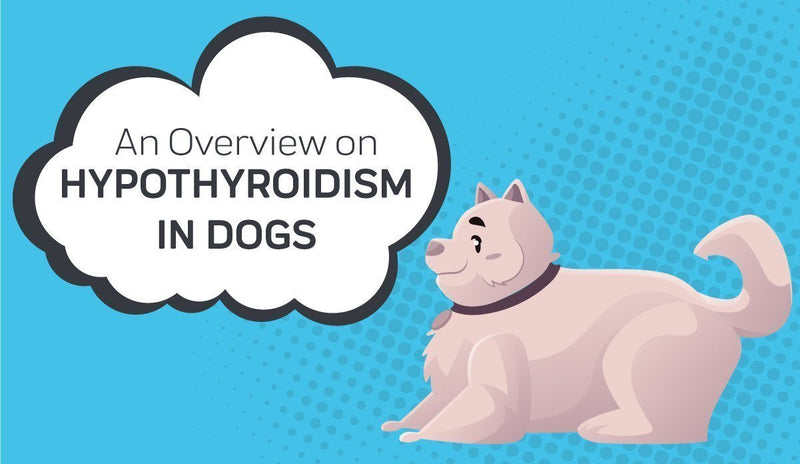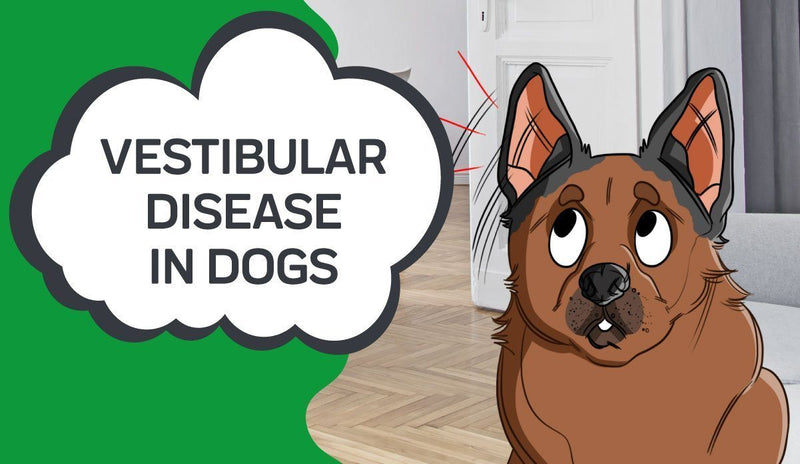- What Is Liver Disease In Horses?
- The Role Of Your Horse's Liver
- Causes Of Liver Failure in Horses
- Symptoms Of Liver Disease In Horses
- How To Diagnose Liver Disease In Horses
- Treatment For Liver Disease In Horses
- Managing Liver Disease In Horses Through Nutrition
- Is Liver Disease In Horses Preventable?
What Is Liver Disease In Horses?

Liver disease in horses - as well as in other mammals - refers to any general damage or disease to the liver. This can be the result of poor diet, scarring, and even a more serious underlying issue like cancer. Your horse's liver is vital to their digestive system, so any damage to it needs to be remedied as soon as it's found.
Liver disease can be difficult to spot in horses for several reasons. First, the liver is a highly regenerative organ. It is the only organ that can regenerate itself, in fact, and many acute conditions will show changes immediately and it will still be able to regrow itself. While this is a handy feature to have within your horse's biological toolkit, it can also make it difficult to spot damage when it does occur, since the symptoms can be overridden by the regeneration.
Secondly, horses generally don't show pain and discomfort very visibly, so you really have to be on your toes to catch clinical signs of it early on. With most health conditions in horses, you'll notice changes in behavior before you start to see any other symptoms.
The Role Of Your Horse's Liver
To understand why liver disease is such a serious health issue, it's important to understand the purpose your horse's liver serves. The liver is one of the largest organs in horses, making up 1% of their total weight. It lies to the right of the median and is completely covered by your horse's ribcage.
The liver plays a critical role in your horse's digestive process. Namely, it organizes and determines what nutrients will be used for. This means that all of the nutrients that your horse eats pass through the liver, which will then metabolize, transform, transport, or store the nutrients along their digestive journey.
This process helps ensure that the nutrient levels in your horse's bloodstream stay at a normal level. The liver also removes harmful toxins from your horse's body and defends against disease.
Causes Of Liver Failure in Horses
The most common cause of liver disease in affected horses is ragwort poisoning. Ragwort is an extremely common weed found in grazing land that are toxic plants to most livestock. When consumed over time, it reduces and eventually stops the liver's ability to regenerate while simultaneously poisoning it.
Liver disease can also occur in horses when the bile duct in their liver becomes inflamed. This makes it difficult or even impossible for bile to leave the liver. Over time, trapped bile can eat away at and damage liver function.
Liver disease can be the result of preexisting conditions as well which make it difficult for them to metabolize nutrients. These conditions - which are sometimes present from birth - can hamper the liver's ability to perform its role. Cancer in your horse's liver can also cause damage that leads to liver disease.
Symptoms Of Liver Disease In Horses
As mentioned, the symptoms of liver disease in horses can be difficult to spot until late-stage progression. Many acute conditions often show signs or symptoms immediately, but some symptoms in horses often go overlooked.
The symptoms that your horse experiences will vary on the severity and progress of their liver disease.

- Colic
- Weight loss
- Fever
- Hemorrhaging
- Hepatogenic photosensitization
- Diarrhea
- Bilateral laryngeal paralysis
- Endotoxic shock
- Gastric impactions
- Hepatic encephalopathy
- Abdominal edema
Because the majority of these symptoms will only surface later into your horse's case of liver disease, it's recommended that you visit a vet as soon as you suspect they may be experiencing some form of health problem.
Changes In Behavior
The early symptoms of horses with liver disease will manifest as changes in behavior. If your horse participates in any kind of sports or athletic activities, you're likely to notice a decrease in energy, performance, or willingness to cooperate. Most horses will start to show display behaviors like depression, aimless walking, walking in circles, head-pressing, excessive yawning, and even mild ataxia.
In more severe cases of liver disease, horses may even show signs of aggression towards their handlers and other horses. This is tied to neurologic signs like drowsiness and obtunded behavior, which - coupled with abdominal pains - can lead to irritable and violent moods.
These behaviors do not necessarily mean that your horse has liver disease, though. In fact, these kinds of behavioral manifestations are common in horses for a broad swathe of diseases. The severity of the symptoms also isn't necessarily an indicator of how severe the underlying issue really is. Every horse will respond to health issues differently.
Jaundice
Jaundice - which is somewhat common in adults and newborns - is a change in the pigment of a horse's skin and eyes. The skin and eyes will typically take on a greenish or yellowish tint. It can also make your horse's skin itchier, urine darker, and feces lighter.
Jaundice occurs when there is an overabundance of bilirubin in your horse's blood. Because bilirubin levels are regulated by your horse's liver, liver disease can cause a horse to develop jaundice as the disease progresses.
Once again, though, jaundice is not necessarily an indicator of liver disease. In fact, 10% of healthy horses will exhibit mild symptoms of jaundice, and horses that are anorexic for any reason typically develop jaundice as a result. Certain medications can also cause a horse to show signs of jaundice. To have a better idea of whether or not your horse's jaundice is tied to liver disease, look for concurrent symptoms of abdominal pain and colic.
Light Sensitivity
In more severe cases of untreated liver disease in horses, their skin can become sensitive to sunlight. This happens due to an increase in phylloerythrin, a photodynamic agent that can be found in your horse's gastrointestinal tract. Phylloerythrin is a naturally occurring extract found in the plants that horses eat. Normally, the horse's liver would absorb the phylloerythrin that they ingest and remove it safely.
However, because liver disease impairs the liver's ability to function healthily, the phylloerythrin in your horse's blood can increase to unsafe levels, which results in their skin being extra sensitive to the UV rays found in sunlight. This can lead to sores and lesions developing across a horse's skin.
Skin that is less pigmented will experience symptoms of light sensitivity the worst. If your horse has white spots, for example, this is where you'll see the earliest signs of liver disease induced light sensitivity.
How To Diagnose Liver Disease In Horses
Like any serious health condition in horses, the place you'll need to go to get an accurate diagnosis is your vet. They are the only person that can accurately determine whether your horse has liver disease or not. Your vet will look for all of the previously mentioned symptoms of liver disease while examining your horse, and then move on to more serious diagnostic measures if needed.
It's important to keep track of any and all changes you notice in your horse when you take them to the vet, as your vet will have an easier time diagnosing your horse with more information. This includes things like changes in behavior, eating habits, and so on.
After examining your horse and going through the signs that you've noticed, they'll likely perform some kind of bloodwork and might even need a liver biopsy to confirm whether or not liver disease is the issue. A biopsy involves taking a sample of your horse's liver and examining it through a microscope.
Treatment For Liver Disease In Horses
The way your horse's case of liver disease is treated will depend on the cause of their liver disease. Because the liver is so adept at healing itself, most cases of liver disease can be resolved simply by identifying the cause and resolving it. If an infection is the determined cause, then antibiotics will be prescribed. If the diet is the culprit, then a new diet will be recommended to fix the issue.
Not only will the liver disease itself need to be treated, but also the damage caused by it. Because the liver is responsible for detoxing your horse's system, they may be given medication or supplements to aid in this process. Your horse's liver is also prone to scarring during liver disease, so your vet will likely administer medication to help reduce liver scarring as well.
Managing Liver Disease In Horses Through Nutrition
One of the leading causes behind liver disease in horses - and health conditions for horses in general - is diet. Because we eat a diet of three square meals a day, we tend to put our animals on a similar schedule. While this works for us, though, it doesn't necessarily work for all of our animals, especially horses.
In the wild, horses casually graze throughout the day. They don't necessarily eat "meals," but rather snack constantly. Because of this, their digestive system is constantly creating and excreting bile to digest food. Unlike humans, horses rely on this bile to be used all throughout the day. Otherwise, it can sit in their stomach and move through their digestive system, causing serious damage.
So, when horses are kept on a diet where they only eat at certain points in the day, their stomach acid is slowly damaging their digestive system over time, which can lead to liver disease. This is why horses should always have access to food all throughout the day. If your vet finds that diet is the root cause of your horse's liver disease, here are some changes you can make to resolve the issue.
Protein
Protein intake will need to be controlled in any horse that is diagnosed with liver disease, but especially those that are struggling with behavioral symptoms. In particular, protein intake needs to be kept to a minimum. Excessive protein levels in horses can worsen symptoms of liver disease and make it harder for them to recover.
The reason that your horse's protein will need to be restricted is that higher levels of protein lead to higher levels of ammonia in your horse's intestinal tract. Adult horses that work on a semi-regular basis will only need protein to make up 8% of their overall diet.
You can meet this protein limit - without exceeding - simply by feeding your horse standard, high-quality hay. Legumes on the other hand, like alfalfa and cloves, should be avoided, as they are higher in protein.
Forage
Forage should make up the vast majority of what your horse eats. This includes things like grass and hay. In healthy horses, forage consumption could be as simple as letting your horse graze in pasture throughout the day. However, since your horse has the potential to eat plants high in protein while grazing, it's better to give them forage on your own accord to avoid unintentional protein consumption.
So long as your pasture is free of weeds and high protein plants, you can safely let them forage throughout the day. Keep in mind too that if your horse is experiencing symptoms of photosensitivity to let them out at night instead of during the day.
Once again, be sure to avoid feed that is high in protein, like alfalfa. If you're unsure of the protein levels in the forage that you are giving to your horse, you can take a sample of it to a nutritional specialist and have them break it down for you.
Compound feeds
Compound feeds are those that are made ready to eat for your horse based on a standard balanced diet. While these can be a great way to feed your horse when they are healthy, the balance of nutrients might not be quite right for a horse struggling with liver disease.
The main factor you're going to want to watch in horses eating compound feed is starch intake. Your horse should only be fed one gram of starch for every kilogram that they weigh. For example, if your horse weighs 600kg, then they should only eat 600g of starch per day. If your horse has another condition that can be affected by a starch - like laminitis - then the restriction may need to be even more severe.
High levels of starch in your horse's diet can lead to insulin dysfunction, which can worsen the effects of liver disease. Break up your horse's daily compound feedings into four to six meals throughout the day.
Oils
Oil should be kept to as small an amount as possible, as it can be difficult for your horse to digest it with a malfunctioning liver. In most cases, 0.01mL to 1mL of oil per kilogram that your horse weighs should be in their daily diet. If your horse weighs 600kg, that would mean 60mL to 600mL of oil per day. If you notice that your horse has symptoms like diarrhea or steatorrhea, cut back on oil consumption altogether and contact your vet.
Vitamins & Minerals
When it comes to vitamins and minerals, there will be some that you need to feed your horse in excess and others that you'll want to feed them less. This is because vitamins and minerals are processed and distributed by the liver, which won't be working properly in horses with liver disease.
First, make sure that your horse is getting a balanced diet. Feed them the correct amount of forage or compound feed at the right times throughout the day. This will keep their system from getting worse due to bile damage, while also ensuring that they aren't overloaded with vitamins and minerals that can't be processed.
Avoid adding supplements to your horse's diet that can increase their levels of iron or copper. Your horse may have a harder time processing Vitamin A, D, and E as well, so you may need to give them double the daily intake of each in their diet during recovery. Adding Vitamin C and zinc supplements to their diet may also be helpful.
CBD Supplements

If your horse is suffering from particularly harsh side effects with their liver disease, consider adding CBD supplements to their diet. CBD supplements are completely organic, toxin, and THC-free. This means you can give it your horse without having to worry about worsening their condition. While CBD can't directly improve your horse's struggles with hepatic disease, it can make the symptoms much easier to manage. In particular, CBD for horses is great for reducing pain, discomfort, and inflammation. It can also improve their sleep cycle and overall mood. Your horse shouldn't have to suffer while recovering from liver disease; using CBD can make their recovery as painless as possible.
Is Liver Disease In Horses Preventable?
Yes and no. The truth is, it depends on why exactly your horse has liver or hepatic disease in the first place. Since it can be difficult to prevent in some cases, it's important to always be on your toes and seek veterinary assistant as soon as you think you need it.
In cases where the diet is the culprit, you can avoid liver disease development by keeping your horse on a low-protein diet. Keeping a horse's stress low, pasture clear of weeds, and diet toxin-free will all help prevent liver disease in horses.
Sources:
Disorders of the Liver in Horse
Liver disease in the horse: clinical signs and diagnostic aids
Liver disease in the mature horse
Clinical Pathology in the Adult Sick Horse
Approved by:
Dr. Ivana Vukasinovic
Doctor of Veterinary Medicine, University of Belgrade
 Ivana Vukasinovic grew up in Serbia and attended the University of Belgrade where she received a degree in Veterinary medicine in 2012 and later completed surgical residency working mostly with livestock. Her first year of practice was split between busy small animal practice and emergency clinic, and after two more years of treating many different species of animals, she opened her own veterinary pharmacy where an interest in canine and feline nutrition emerged with an accent on fighting animal obesity. In her free time, she acts as a foster parent for stray animals before their adoption, likes to read SF books and making salted caramel cookies.
Ivana Vukasinovic grew up in Serbia and attended the University of Belgrade where she received a degree in Veterinary medicine in 2012 and later completed surgical residency working mostly with livestock. Her first year of practice was split between busy small animal practice and emergency clinic, and after two more years of treating many different species of animals, she opened her own veterinary pharmacy where an interest in canine and feline nutrition emerged with an accent on fighting animal obesity. In her free time, she acts as a foster parent for stray animals before their adoption, likes to read SF books and making salted caramel cookies.
Thanks for stopping by!
P.S. We Love You!
Sincerely,
The Innovet Team
Please do not ask for emergency or specific medical questions about your pets in the comments. Innovet Pet Products is unable to provide you with specific medical advice or counseling. A detailed physical exam, patient history, and an established veterinarian are required to provide specific medical advice. If you are worried that your pet requires emergency attention or if you have specific medical questions related to your pet’s current or chronic health conditions, please contact or visit your local/preferred veterinarian, an animal-specific poison control hotline, or your local emergency veterinary care center.
Please share your experiences and stories, your opinions and feedback about this blog, or what you've learned that you'd like to share with others.
















